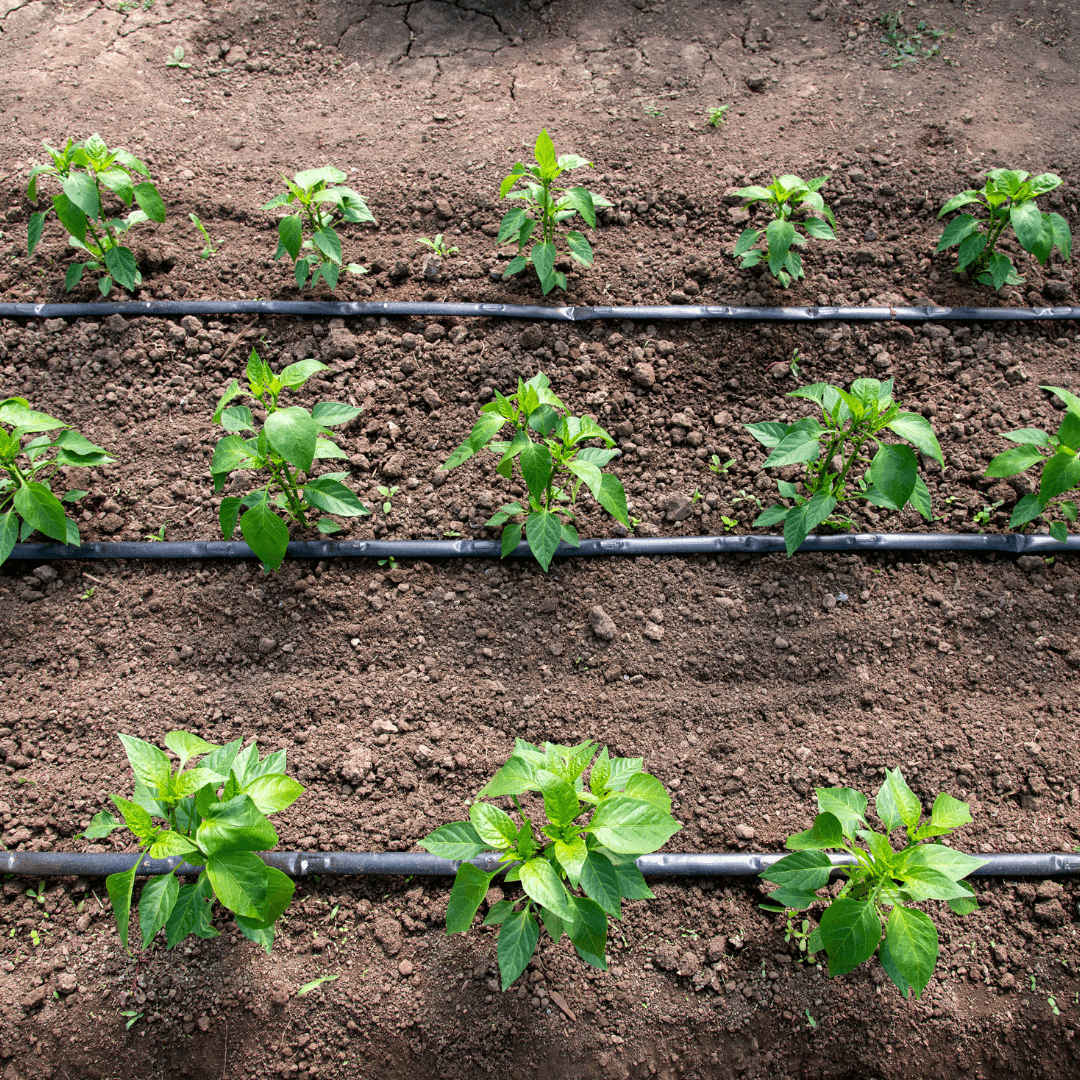Best Fertilizers for Peppers: Make Best Use Of Plant Health and Yield
Best Fertilizers for Peppers: Make Best Use Of Plant Health and Yield
Blog Article
Organic Vs. Synthetic Fertilizers: Which Is Best for Supporting Healthy Pepper Plants?
In the realm of supporting healthy pepper plants, the selection between organic and artificial plant foods stands as a critical choice with far-ranging effects. While both options aim to supply crucial nutrients to sustain plant growth, the subtleties of their impact on the soil, plant health, and the atmosphere trigger a discussion that echoes throughout the gardening area. Comprehending the unique advantages and possible challenges of each plant food type is crucial for pepper farmers looking for to maximize their yields while keeping a sustainable and eco-conscious strategy.
Advantages of Organic Plant Foods
Organic plant foods offer an environmentally-friendly and lasting technique to nourishing pepper plants, offering vital nutrients without making use of synthetic chemicals. These all-natural plant foods are obtained from natural sources such as compost, manure, bone meal, and seaweed, promoting dirt health and wellness and biodiversity. Unlike artificial fertilizers, natural alternatives release nutrients gradually, ensuring a constant and well balanced supply for pepper plants to grow.
One significant advantage of natural plant foods is their capacity to enhance soil structure and water retention. By improving dirt health and wellness, natural plant foods advertise useful microbial task, which helps in nutrient uptake by pepper plants. Additionally, organic fertilizers minimize the risk of chemical run-off, securing water resources from contamination and safeguarding the setting.
Moreover, organic plant foods add to lasting dirt fertility by advertising the growth of valuable soil organisms. These organisms assist damage down organic issue, releasing nutrients in a type that is quickly available to pepper plants. best fertilizers for peppers. By cultivating a healthy and balanced soil ecological community, organic fertilizers support sustainable pepper farming practices that benefit both plants and the setting
Downsides of Synthetic Plant Foods
Artificial fertilizers, in comparison to their natural equivalents, pose numerous negative aspects when utilized to nourish pepper plants, affecting both plant health and wellness and environmental sustainability. One significant drawback of artificial fertilizers is their propensity to seep nutrients from the dirt swiftly. This quick leaching can result in nutrition discrepancies in the soil, causing plants to struggle with shortages or toxicities. Furthermore, synthetic plant foods can hurt helpful dirt organisms, such as earthworms and beneficial microorganisms, disrupting the dirt community's balance.
Additionally, the overuse of artificial fertilizers can add to water air pollution. Excess plant foods not taken in by plants can remove right into water bodies, leading to eutrophication, where algae blossoms diminish oxygen degrees in the water, damaging aquatic life. Synthetic fertilizers are generally acquired from non-renewable resources, such as fossil gas, adding to carbon discharges and environmental degradation throughout their production.
Nutrient Absorption Contrast
Reliable nutrient absorption plays a critical function in the overall health and development of pepper plants. When comparing organic and synthetic plant foods in regards to nutrient absorption, organic fertilizers have the advantage of giving an extra balanced and slow-release source of nutrients (best fertilizers for peppers). Organic plant foods include a selection of macro and micronutrients that are not just beneficial for the plants but additionally promote healthy soil microbial activity, which aids in nutrient click here for info uptake. On the various other hand, synthetic fertilizers commonly provide a fast release of nutrients, which can bring about leaching and runoff, causing lower nutrient absorption prices by the plants.
Additionally, organic fertilizers boost soil structure and water retention capacity, allowing pepper plants to accessibility nutrients much more effectively. This improved dirt top quality facilitates root growth, making it possible for far better nutrient absorption. Synthetic plant foods, although at first improving plant growth due to their high nutrient concentrations, may impede lasting nutrient absorption by degrading soil health over time.
Environmental Effect Factors To Consider

On the other hand, synthetic fertilizers, although often more promptly offered and focused to plants, can have harmful effects on the environment if not applied properly (best fertilizers for peppers). Their production needs high power inputs, causing greenhouse gas exhausts and contributing to environment adjustment. The drainage of excess synthetic fertilizers can pollute water sources, leading to eutrophication and damaging aquatic communities.
Ideal Fertilizer Practices for Peppers
When feeding pepper plants, enhancing nutrient uptake and minimizing ecological impact are essential factors to consider. To achieve this, it is necessary to comply with finest fertilizer practices customized to the particular requirements of pepper plants. One critical practice is to perform a soil test before applying any type of plant foods. This test can determine the pH level of the dirt and recognize any type of nutrient deficiencies, assisting you in picking the most appropriate plant food formulation.
Another vital practice is to fertilize pepper plants at the correct time. Commonly, peppers profit from getting fertilizer at planting and afterwards again when they begin to blossom. Over-fertilizing can cause vitamins and mineral imbalances and hurt the plants, so it is essential to comply with recommended application rates.
Furthermore, picking a balanced fertilizer with an NPK ratio that suits pepper plants' needs is basic. Inevitably, combining natural and artificial fertilizers deliberately can help nurture healthy pepper plants while minimizing environmental influence.
Final Thought

Organic fertilizers provide an environmentally-friendly and lasting technique to beneficial pepper plants, providing Related Site essential nutrients without the use of artificial chemicals. Unlike synthetic plant foods, natural choices launch nutrients slowly, making certain a balanced and stable supply for pepper plants to grow.
Artificial fertilizers, in comparison to their organic counterparts, posture different disadvantages when utilized to nurture pepper plants, affecting both plant health and ecological sustainability. When comparing natural and synthetic fertilizers in terms of nutrient absorption, organic plant foods have the benefit of providing a much more balanced and slow-release source of nutrients.In addition, natural fertilizers improve dirt framework and water retention capability, permitting pepper plants to access nutrients extra efficiently.
Report this page